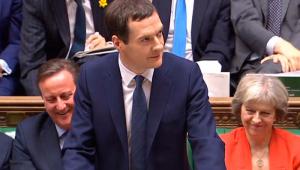An examination of the plan by think-tank the Institute for Public Policy Research found poorer councils would face a “benefit trap” once rates are devolved from 2020.
Under the plan, business rate revenue will be fully devolved to local authorities from 2020/21, while revenue support grants will end. A funding baseline is likely to be set for town halls using local business rates, as well as either a top-up or tariff payment to reflect a new assessment of local need. Beyond this point, authorities will retain any growth in rates.
But the IPPR highlighted that even if poorer areas were able to increase their business rate base, it is unlikely they would see a significant boost in income. Smaller authorities would have a greater incentive, however, as a proportion of their income.
For example, a 2% growth in business rates for a poor council such as Barnsley would yield just 0.8% extra income. A similar rise for a smaller council such as South Bucks, however, would increase its income by over 50%, according to the report.
Alfie Stirling, IPPR’s research fellow in economic policy, said he welcomed the further devolution of taxes in England. He agreed that further business rates retention should form part of an ambitious plan for the future. “Handing over the keys for local resources to local decision-makers will boost their incentive to improve their local economies,” he said.
“But the government’s current announcements give serious cause for concern. They risk trapping poorer councils in a cycle of weak incentives and weak economic growth, which would lead to underfunded services and less vibrant high streets. We urge the government to consider an alternative that ensures devolution works for everyone."
The think-tank called for the government to guarantee that all local authorities always see their incomes grow in line with local economic growth. This would ensure that there was a greater incentive for places like Barnsley to increase business rates, which would be retained over and above this level.
IPPR North director Ed Cox added that the UK has one of the most centralised public finance systems in the developed world.
“While the move to incentivise local economic growth is a good thing, it will be a challenge to balance this with a system that is both fair and effective,” he said.
“Government should consider adopting our ‘growth first’ scheme,” he added, “which ensures that incentives for growth are spread equally across the country.
“We are encouraged by the government’s plans to move to a system of 100% business rates retention for local councils, but we also urge the government to go much further with a more holistic approach to fiscal devolution,” concluded Cox.




















